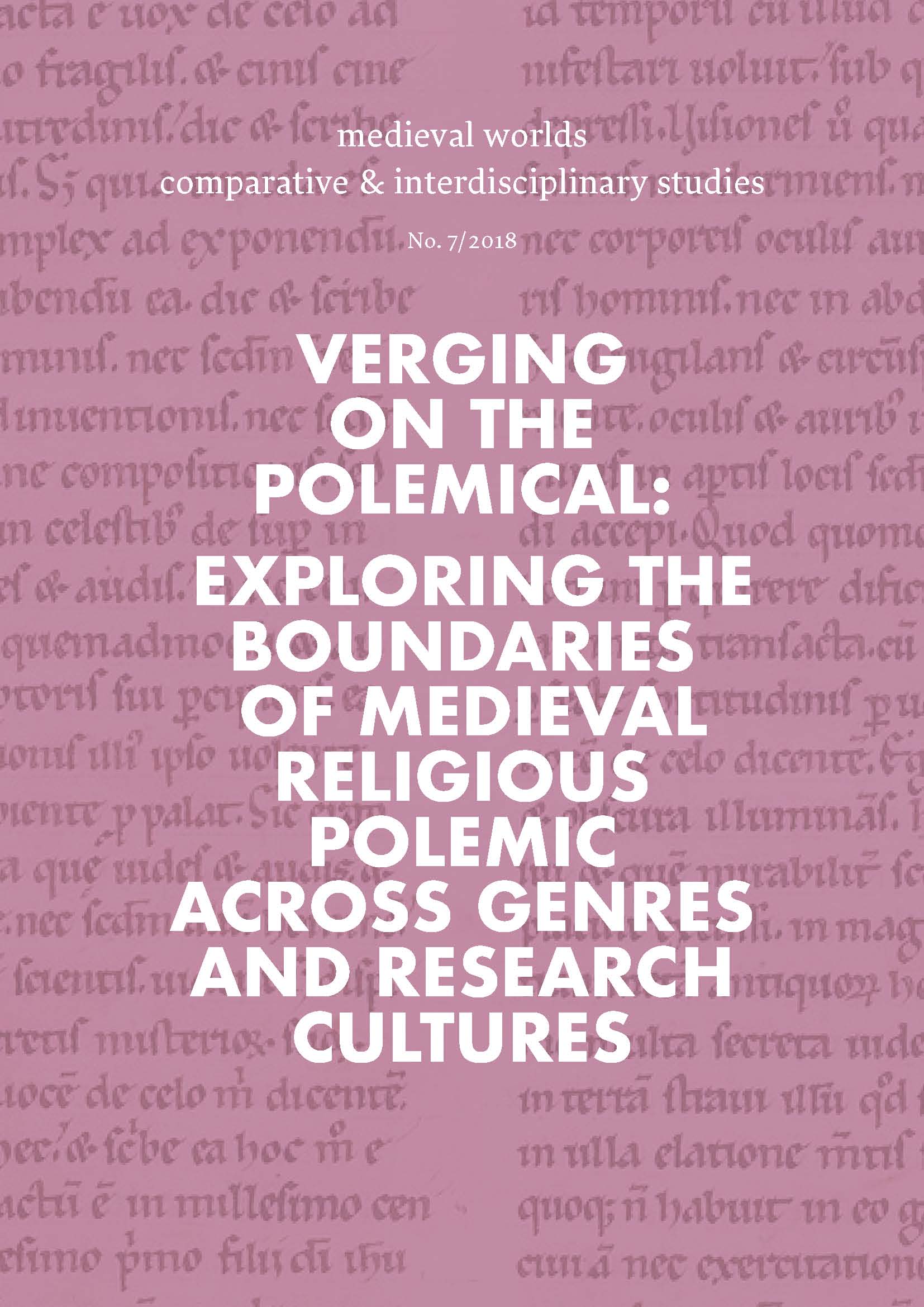Walter POHL – Andre GINGRICH (Eds.)
medieval worlds • no. 7 • 2018
VERGING ON THE POLEMICAL: EXPLORING THE BOUNDARIES OF MEDIEVAL RELIGIOUS POLEMIC ACROSS GENRES AND RESEARCH CULTURES
Claudia Daiber
S. 114 - 136
doi:
10.1553/medievalworlds_no7_2018s114
Verlag der Österreichischen Akademie der Wissenschaften
doi:
10.1553/medievalworlds_no7_2018s114
Abstract:
The article analyses the polemics used in the Fastnachtspiel (Shrovetide Play) Der Juden Messias – in scholarship also known as Spil vom Herzog von Burgund − by the meistersinger Hans Folz (1435/40-1513), a barber-surgeon from Nuremberg. The play belongs to a group of Shrovetide plays within Folz’s oeuvre which, under a religious cover, negotiates the given sociological divide in the city of Nuremberg between the Christian and the Jewish communities at the end of the fifteenth century. In its first part, the play systematically stabilizes the Christian side and destabilizes the other, i.e. the Jewish side by directing polemical attacks through the devices of self-accusation and self-flagellation by the Jewish characters. The effect is that the actions of the Christian side are legitimized and any moral hurdles towards condemning the Jewish characters are removed by ultimately equating them with feces and swine. The second part contains a rather ambiguous message since on the one hand the ruler expressis verbis gives his permission to the mob, represented by the jester characters, to rob, rape and oust the Jewish characters. This consenting, on the other hand, prompts a uniting of the mob characters with the ruler. In other words, any moral authority of the ruler – who clearly is a metaphor for the later emperor Maximilian I – is put on a par with the mob and is therefore denied. Whether or not this latter message was appreciated by the city council of Nuremberg at the time remains an open question since there is, to date, no archival proof of the play’s staging nor of its rejection.
City of Nuremberg; sixteenth century city culture; Fastnachtspiel/Shrovetide Play; Anti-Judaistic polemics and agitation; criticizing the ruler; staging the Judensau
Published Online:
2018/06/29 15:18:22
Document Date:
2018/06/29 15:17:00
Object Identifier:
0xc1aa5576 0x00390b25
Rights:All rights reserved.For questions regarding copyright and copies please contact us by email.
MEDIEVAL WORLDS provides a new forum for interdisciplinary and transcultural studies of the Middle Ages. Specifically it encourages and links comparative research between different regions and fields and promotes methodological innovation in transdisciplinary studies. Focusing on the Middle Ages (c. 400-1500 CE, but can be extended whenever thematically fruitful or appropriate), MEDIEVAL WORLDS takes a global approach to studying history in a comparative setting.
MEDIEVAL WORLDS is open to regular submissions on comparative topics, but also offers the possibility to propose or advertise subjects that lend themselves to comparison. With a view to connecting people working on related topics in different academic environments, we publish calls for matching articles and for contributions on particular issues.
Table of Contents
Introduction
Verging on the Polemical: Towards an Interdisciplinary Approach to Medieval Religious Polemic
Sita Steckel
Escalations and/in the Different Contexts of Polemical Engagements
Anti-Jewish Polemics in Business Documents from Late Medieval Austria
Birgit Wiedl
Good and Bad Friars: Polemical Patterns and Strategies between Franciscans in the Early Fourteenth Century
Melanie Brunner
Obediencia, reformatio and veritas: Ecclesiological Debates during the Western Great Schism (1378-1417)
Bénédicte Sère
Polemics Investigated in a Late Fifteenth-Century Fastnachtspiel (Shrovetide Play)
Claudia Daiber
Embedding and Disembedding Polemical Texts
The Text as Heretic: Mixed Genres and Polemical Techniques in a Refutation of the Mirror of Simple Souls
Justine Trombley
Transfers of Anti-Waldensian Material from a Polemical Treatise to a Didactic Text
Reima Välimäki
Magistra magistrorum: Hildegard of Bingen as a Polemicist against False Teaching
Andra Alexiu




 Home
Home Print
Print
 References
References
 Share
Share
